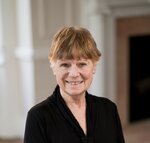Caroline Wiseblood Meline experienced so much extreme anxiety as a teenager that she says it “grew into a monster.”
This item is available in full to subscribers.
We have recently launched a new and improved website. To continue reading, you will need to either log into your subscriber account, or purchase a new subscription.
If you are a digital subscriber with an active subscription, then you already have an account here. Just reset your password if you've not yet logged in to your account on this new site.
If you are a current print subscriber, you can set up a free website account by clicking here.
Otherwise, click here to view your options for subscribing.
Please log in to continue |


Caroline Wiseblood Meline, a 45-year resident of Germantown, experienced so much extreme anxiety as a teenager that she says it “grew into a monster.” The need to be viewed as attractive by men consumed her.
The feeling “operated as my primary motivation for many decades,” said Meline, who teaches philosophy at the Curtis Institute of Music. “It caused me to focus hypercritically on my appearance so that I never looked good enough.”
After almost three decades of self-punishment by way of an eating disorder (even though she was never more than 15 pounds overweight), Meline had an epiphany that enabled her to step off a roller coaster of binging and fasting and develop a rational eating plan in her early 40s. She decided to share her hard-won insights in a book that chronicled her journey.
“The Constant Dieter: A Philosopher's Guide to Conquering Chronic and Compulsive Overeating” (Jet Press), combines self-help, memoir, academic philosophy and psychology. Meline will be discussing her book on Saturday, March 9, 2:30 p.m., in the second floor reading room at Big Blue Marble Bookstore, 551 Carpenter Lane in West Mt. Airy.
“The Constant Dieter” helps readers address four major obstacles to conquering chronic and compulsive overeating: not understanding the constraints on their will, not living in their creative true self, unconsciously working against their own aims and not dieting realistically. The new book provides an inspiring intellectual journey and a radically sane eating program, which Meline insists can “lead to long-term, desired change … and uncover their true selves.”
Dr. Linda Good, co-founder of Mt. Airy Family Practice, told us, “I have searched for ways to assist patients with permanent weight maintenance issues. This self-help book is a composite of practical, medically sound advice and deeply personal memoir, supported by well-researched psychological and philosophical principles.”
Meline, now 82, a Boston native who came to Philadelphia when her former husband began working at Philco-Ford, studied psychoanalytic theory, returned to school at 51 and earned her doctorate from Temple University. Her goal was to understand why so many Americans have an unhealthy relationship with food and their weight.
More than 200 million of America’s 330 million population are either overweight or obese. According to federal government statistics, 36.5 percent of adults, or 100 million people, are obese, and another 32.5 percent are overweight.
But Meline insists that her book “is not aimed at people with obesity. It is not about the physiology of weight. People with eating disorders may not look all that different from people who do not have eating disorders.
“The current trend in diet culture disparages dieting, period. They say it is unhelpful and counterproductive,” she said. “And there are ‘fat activists’ who are dedicated to countering shame. Their argument is that being fat is OK, not even unhealthy, that body mass index is irrelevant. Their goal is self-acceptance at any weight and to stop shaming.”
Meline disagrees with that approach.
The program she has created offers a diet and maintenance program in which participants can eat the maximum amount and still lose weight slowly. The challenge, she says, is to stabilize at a level where participants can maintain it indefinitely.
“One of the reasons I got my Ph.D., which took 11 years, was to have more authority behind my views,” Meline said. “But it's not a given that people will follow your advice even if they want to. What if people do not have free will? We are not fully in control. That's what drove me to philosophy.”
For more information, visit carolinewisebloodmeline.com. Len Lear can be reached at lenlear@chestnuthilllocal.com